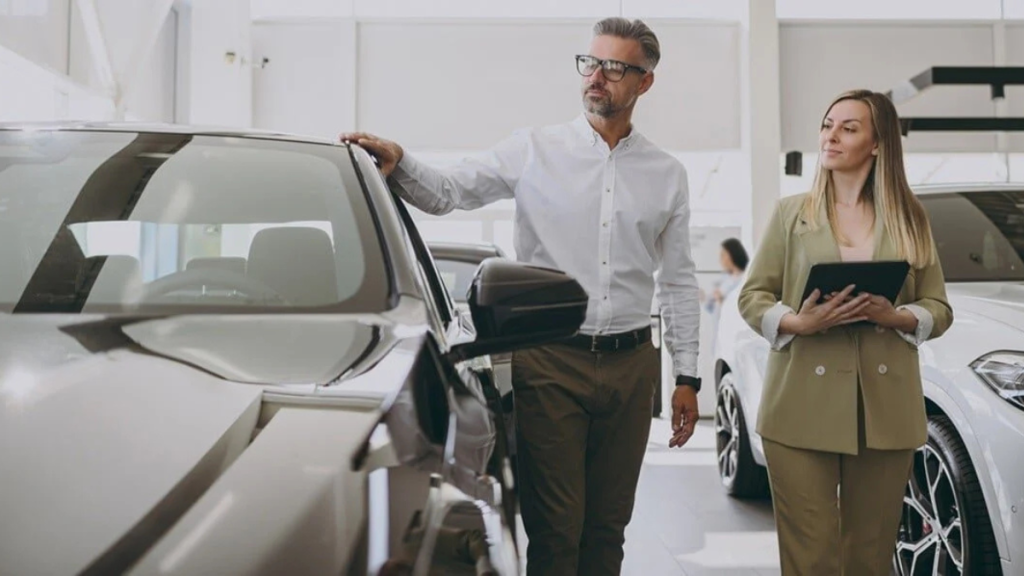In an age of digital overload, personalization has become the critical differentiator in automotive marketing. By 2025, customers not only prefer personalized experiences—they expect them. For dealerships, delivering relevant, individualised interactions across multiple channels is now fundamental to capturing attention, increasing customer satisfaction, and driving long-term loyalty.
This article explores why personalization is essential for automotive dealerships, highlights emerging personalization trends, and provides actionable strategies to implement highly effective personalized marketing campaigns that resonate with automotive consumers.
Why Personalization is Crucial for Automotive Dealerships
Today’s automotive customers are inundated with generic marketing messages, leading to marketing fatigue. Personalization directly addresses this challenge by ensuring dealership communications are relevant, meaningful, and timely. Key advantages include:
- Improved Customer Engagement: Personalized messages achieve significantly higher open and click-through rates compared to generic communications.
- Increased Conversion Rates: Tailored content speaks directly to customers’ specific interests, dramatically boosting conversions and dealership visits.
- Stronger Customer Loyalty: Personalization creates emotional connections and demonstrates customer understanding, enhancing overall brand loyalty.
- Competitive Differentiation: Effective personalization helps dealerships stand out, clearly positioning them ahead of competitors.
Emerging Personalization Trends in Automotive Marketing for 2025
1. Hyper-Personalised Email Marketing
Email remains a crucial channel, but mass-blast messages are no longer effective. By 2025, dealerships will deliver emails based on real-time data, customer behaviour, and predictive analytics.
- Example: Emails triggered by recent customer actions, such as vehicle browsing history, service reminders, or abandoned shopping carts, significantly increase relevance and engagement.
2. AI-Driven Recommendations
Artificial intelligence (AI) is becoming increasingly critical for understanding customer behaviour and predicting needs. Dealerships can use AI to suggest vehicles, services, and offers uniquely matched to individual customer preferences and histories.
- Example: AI-driven systems recommend vehicles based on customers’ previous purchases, browsing patterns, or current vehicle’s age, prompting timely upgrades or servicing.
3. Personalized Video Content
Video remains a dominant format, and dealerships will increasingly personalise video messages for individual customers.
- Example: A customer who previously expressed interest in SUVs might receive personalised videos showcasing the latest SUV features or tailored video invites to exclusive SUV test-drive events.
4. Location-Based Personalization
Leveraging geolocation data enables dealerships to deliver location-specific marketing, providing highly relevant offers and information tailored to customers’ local environments.
- Example: Customers within a specific geographical radius receive targeted messages about local dealership events, weather-related service specials, or promotions relevant to their immediate area.
5. Behaviour-Triggered Messaging
Real-time messaging triggered by user behaviour—such as website activity, social media interactions, or previous dealership visits—offers immediate personalization opportunities.
- Example: Visitors who spent significant time exploring a specific vehicle model receive personalised follow-up messages highlighting exclusive offers, financing options, or tailored test-drive invitations for that exact vehicle.
Strategies for Implementing Effective Personalization at Your Dealership
To succeed in automotive marketing personalization, dealerships must adopt clear, actionable strategies:
Collect and Leverage Comprehensive Customer Data
Effective personalization requires robust customer data collection, including past purchases, browsing history, demographic information, service interactions, and more. Use dealership CRMs to aggregate and analyse customer data effectively.
Segment Customers Precisely
Divide customers into clear segments based on vehicle preferences, lifecycle stages, buying behaviour, or demographic factors, allowing precise message targeting.
Automate Marketing Processes
Use marketing automation platforms to deliver personalised content at scale, such as automated email sequences triggered by specific customer actions, service reminders, or vehicle recommendation messages.
Integrate Personalization Across Channels
Ensure personalization strategies are consistent across your website, email marketing, social media, SMS, and in-person dealership experiences, delivering a unified and seamless customer journey.
Real-World Automotive Personalization Example
A mid-sized automotive dealership recently implemented an AI-powered personalization strategy, sending targeted vehicle recommendations, tailored service reminders, and hyper-personalised email communications. Within just six months, the dealership achieved:
- A 40% increase in showroom visits prompted by personalised communications.
- 50% higher email open rates and improved click-through rates compared to generic campaigns.
- A notable boost in overall customer satisfaction ratings, resulting in positive online reviews and increased referrals.
This illustrates personalization’s measurable impact on dealership performance, significantly enhancing customer engagement and loyalty.
Best Practices for Dealership Marketing Personalization
To maximise your dealership’s personalization efforts, follow these best practices:
- Prioritise Data Privacy and Transparency: Ensure customers understand how their data is used, offering clear privacy policies and easy opt-out options to maintain trust and compliance.
- Regularly Test and Optimise Campaigns: Continually monitor personalization efforts, testing different messaging, timing, and channels to refine and improve your dealership’s approach.
- Empower Sales and Service Teams: Equip your staff with customer insights to provide highly personalised in-person experiences that complement your digital personalization efforts.
- Invest in Advanced Personalization Technology: Leverage sophisticated platforms capable of real-time data analysis, automation, and personalized content delivery.
Partnering with automotive marketing specialists, such as DealerSmart, can significantly enhance dealership capabilities, offering tailored digital marketing solutions that incorporate advanced personalization techniques seamlessly.
Preparing Your Dealership for Personalization in 2025
Implement these practical steps to build effective personalization capabilities at your dealership:
- Audit Existing Customer Data: Identify what data you currently have, how it’s collected, and how it can be better utilised for personalization.
- Implement Robust Marketing Automation: Choose and deploy marketing automation software designed for automotive-specific personalization.
- Develop Comprehensive Customer Profiles: Aggregate data from multiple touchpoints—sales interactions, service records, website visits, social media interactions—into unified customer profiles.
- Create Personalization Playbooks: Develop clear strategies and guidelines for personalised content creation, outlining message types, triggers, and appropriate communication channels.
Conclusion: Winning the Automotive Market with Personalization
In the highly competitive automotive landscape of 2025, personalization is no longer a luxury—it’s a necessity. Dealerships embracing sophisticated personalization strategies will significantly outperform competitors, attracting, engaging, and converting more customers through highly relevant, individualised experiences.
By investing in advanced technology, leveraging robust customer data, and consistently delivering personalized marketing messages, automotive dealerships can establish meaningful customer relationships, enhance overall satisfaction, and achieve sustainable, long-term business growth.




